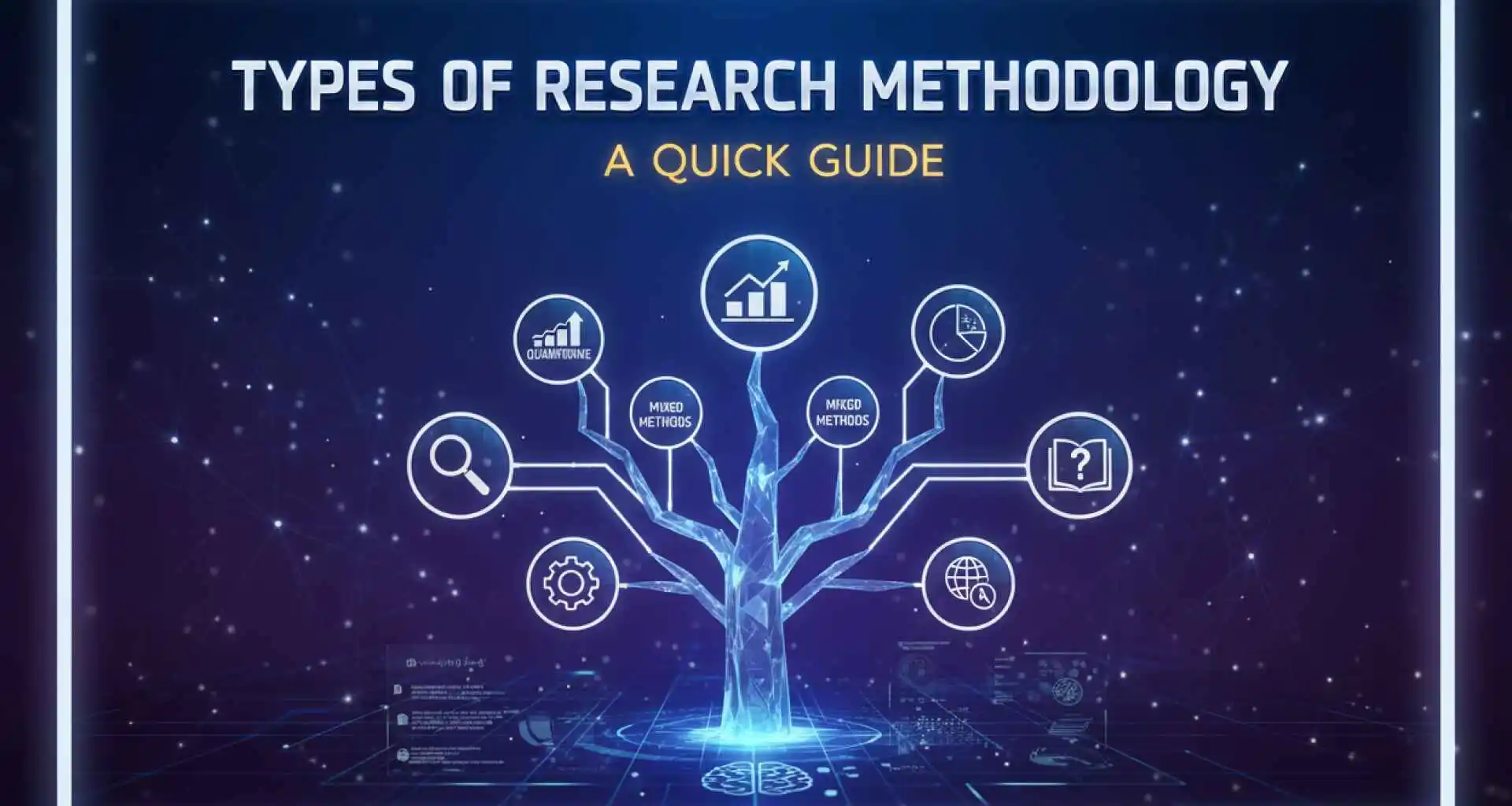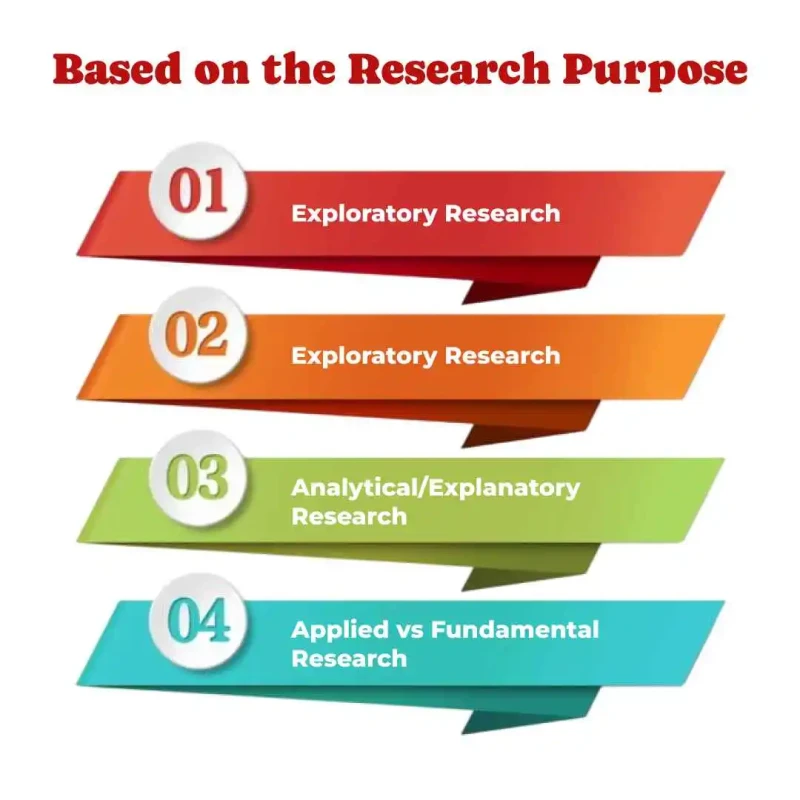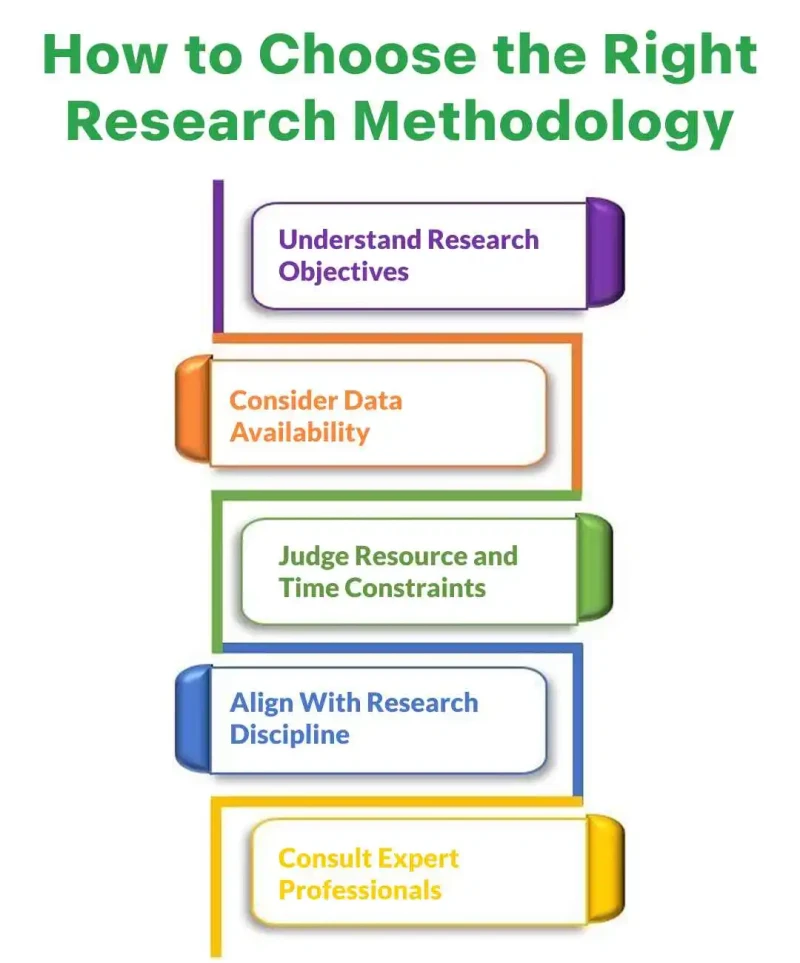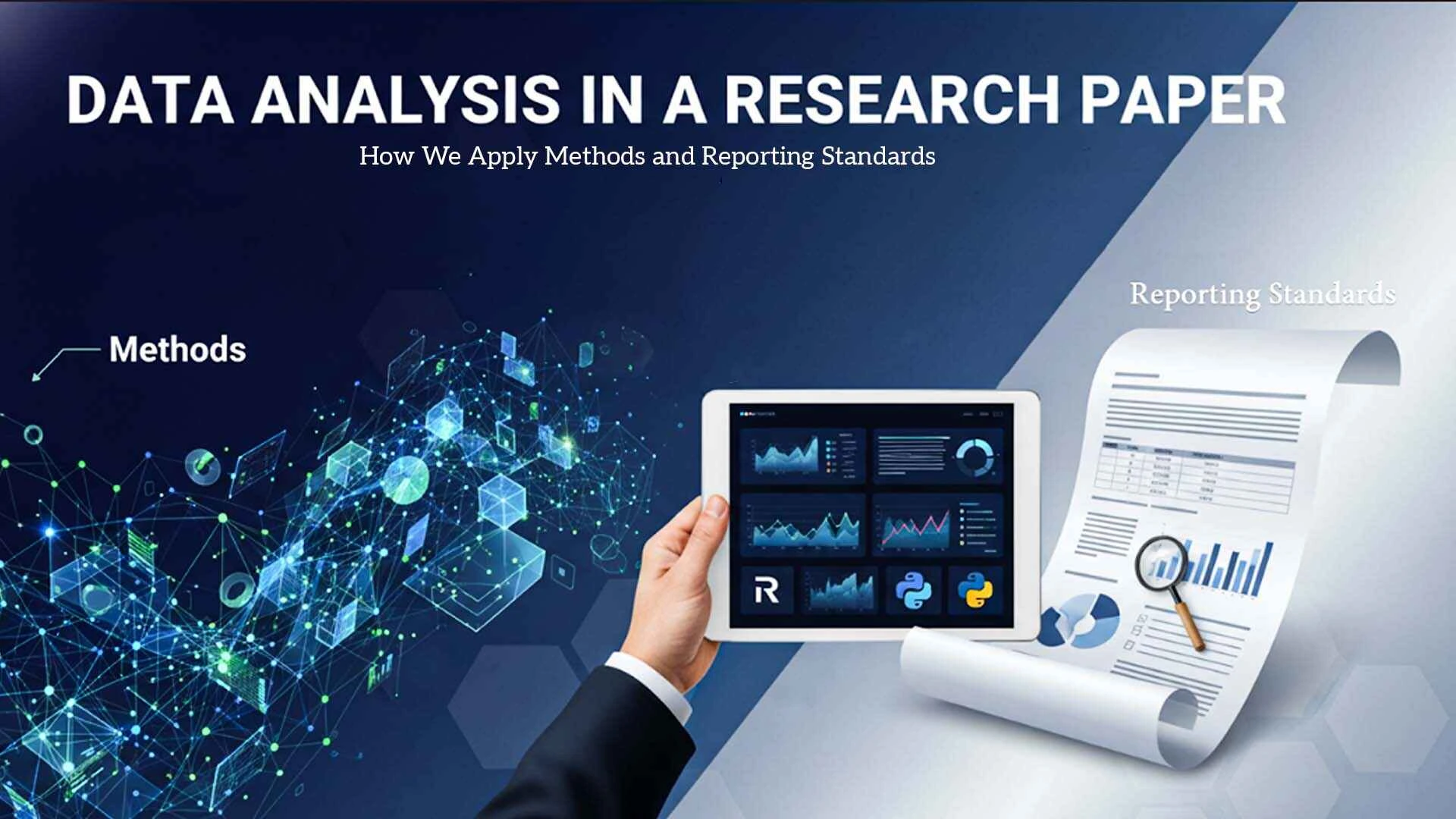
Katy Richards
Research methodology is the backbone of any scholarly or professional research, serving as a structured methodology to gather, analyse, and interpret data to respond to research questions. The awareness of types of research methodology enables researchers and students to choose appropriate methods, whether for discovery, hypothesis testing, or the analysis of trends, ultimately improving the quality, precision, and reliability of their research findings.
Understanding how different research methods align with your study’s goals helps you make an informed choice. This clarity not only simplifies the research planning process but also adds greater credibility to your study.
In order to guide you through this process, this blog provides an overview of the main types of research methodology. It highlights when and where each approach is most effective and explains how methodologies can be selected based on the research purpose. By following these guidelines, you can ensure that every research method you choose supports your objectives and contributes meaningfully to your study.

Various types of research are meant for different purposes. Knowing the purpose that drives each type of methodology enables you to use the appropriate approach at the appropriate phase of your research. Below is a categorisation of the most frequent types:
Exploratory research is employed in the study of new or undefined issues. It is flexible, unstructured, and most suitable for establishing trends, patterns, or hypotheses. Generally utilized at the beginning stages of research, exploratory research allows researchers to make sense when little prior information is available, setting the stage for more formal investigations.
Descriptive research is concerned with describing accurately characteristics or behaviour in a population or phenomenon. In contrast to exploratory research, it is not concerned with establishing causality but gathers detailed data to present a clear picture. Surveys, observational studies, and case descriptions are among the common descriptive research methods.
Analytical or explanatory research aims to gain insight into the interconnections between variables. It is generally employed to test hypotheses and identify cause-and-effect relationships. By assessing why events or phenomena take place, explanatory research transcends mere observation to become more insightful, aiding in theory development as well as applications.
Applied research is aimed at solving real-world problems and producing solutions that can be applied in the real world. Basic, or fundamental, research, by contrast, is geared toward developing theoretical knowledge without specific practical use. The choice between these depends on whether your research purpose is solving problems or developing scholarly theory.
Research methods are the concrete ways researchers actually gather and analyse data. Various methods suit various research questions. Some of the important methods are as follows:
Experimental research entails manipulating one or several variables to see the effect they have on other variables. Experimental research is widely applied in natural sciences as well as social sciences to test hypotheses and determine causality. Controlled settings, like labs or well-designed field experiments, tend to be used in order to provide reliability.
Survey research gathers systematic data from a population through questionnaires, interviews, or electronic forms. It is best suited for the measurement of opinions, behaviour, or trends among large groups. Surveys work best when quantitative data is needed to aid statistical analysis.
Case studies are a close analysis of one case, be it a person, institution, or incidence. This approach offers detailed contextual information and facilitates thorough analysis, and thus is best suited for complicated or unusual research issues.
Observational research involves systematically observing and documenting behaviours or events as they naturally occur. Observation is a non-intrusive type of research that is very common in social sciences and natural studies, where actual occurrences are the most reliable data.
Longitudinal studies track the same subjects over time, allowing researchers to identify changes and trends. Cross-sectional studies, on the other hand, study a population at one point in time. Selection is based on whether your research aims to examine temporal changes or take a snapshot of the population.

Choosing the right methodology involves careful evaluation of several factors. These are five crucial steps that should direct your choice:
Define your research questions and objectives clearly. Your methodology should respond to these goals directly to yield valid and significant results. Misalignment has the potential to undermine the whole study.
Judge the kind of data needed and accessibility. Some methods demand primary data, whereas others use secondary data. Select methods that suit data accessibility to ensure feasibility.
Reflect on available resources, such as time, funds, and skills. Choose methodologies that are feasible to conduct within your constraints without compromising quality.
Alternative academic fields embrace particular approaches. Ensure your chosen method aligns with discipline norms and expectations, which can impact acceptance and credibility.
In case of doubt, seek professional PhD consultancy services . Professionals can assist you in choosing the most appropriate methodology, developing research questions, and making your plan robust and academically acceptable.
Choosing the appropriate research methodology plays a crucial role in yielding credible, reliable, valid, and useful findings. An optimised methodology supports your goal, data, and resources to ensure that your study is credible and effective.
Having a careful plan of methodology also puts publication chances, funding approval, and overall research achievement in favour. For further assistance, reach out to us to get expert advice and consultancy services that guide you through each phase of your research.

Sentiment Analysis Research Papers: A Step-by-Step Research and Publication Guide

Data Analysis in a Research Paper: How We Apply Methods and Reporting Standards